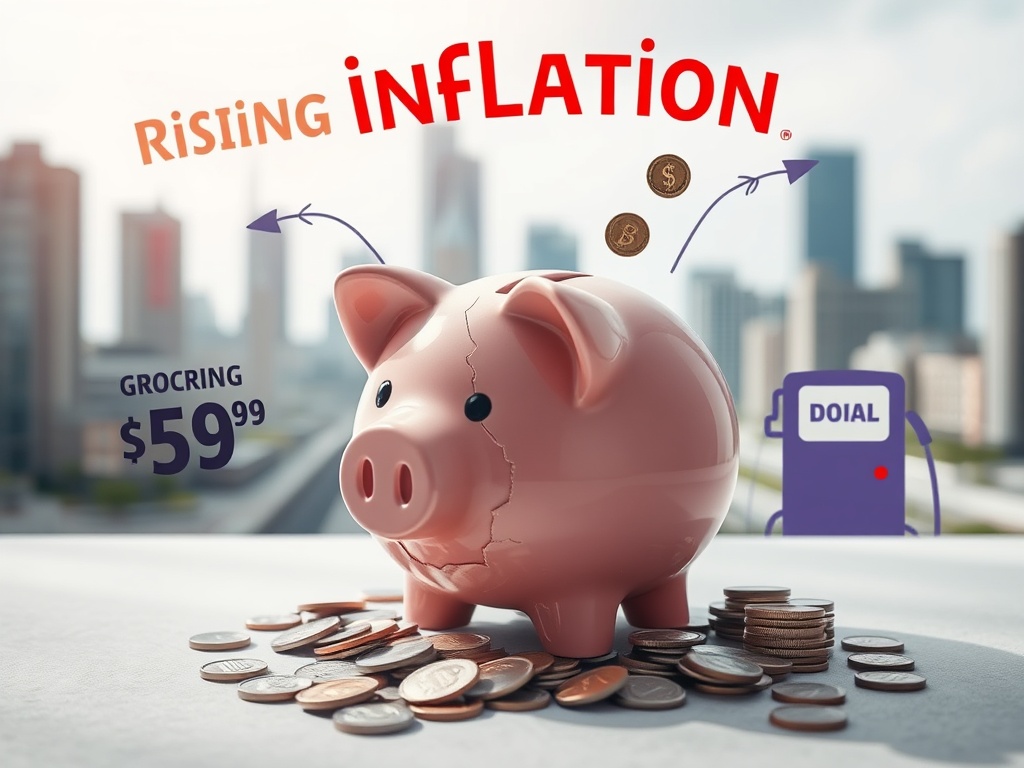Impact of Rising Inflation on Retirement Pensions
Retirees may face challenges regarding their pensions as inflation unexpectedly surged to 3 percent in January. This figure is significantly above the Bank of England’s target of 2 percent and marks the highest inflation rate in the past ten months, raising concerns about the financial wellbeing of households. The i Paper consulted experts to explore the implications for retirement savings.
How Inflation Erodes Pension Value
While a single high inflation figure may not drastically alter the landscape for pension savers in the short term, the long-term effects of rising prices can considerably diminish the value of pension pots. For instance, if your pension pot stands at £100,000 today, it would need to grow to £103,000 within a year to maintain its purchasing power, assuming inflation remains at 3 percent. Over a retirement that spans 20 to 30 years, this erosion can significantly impact the overall value of your savings.
Sir Steve Webb, a former pensions minister and partner at LCP, cautions that it’s “easy to underestimate” the length of retirement and how much inflation can devalue savings over time. He emphasizes, “The average retiree can expect to live for two decades or more, and as the cost of living increases, your pension pot and other savings will inevitably stretch thinner as you age.”
Ensuring Your Money Works Hard for You

Given that inflation is a persistent concern, experts advocate for long-term investment strategies to protect the value of pension pots. Tom Selby from AJ Bell notes that most pension pots are placed in default funds selected by employers’ pension schemes. While these funds cater to a broad audience, they may not align with individual risk profiles or retirement objectives. Selby advises, “Reviewing your investments to ensure alignment with your goals is an excellent starting point, alongside keeping a close watch on your costs and fees.”
Pension savers must ensure that their investments have the growth potential to outpace inflation, particularly if retirement is still years away. Webb echoes the sentiment that periodic reviews of investments are crucial, stating, “A primary focus should be to ensure your money is actively working for you, rather than sitting in low-interest cash accounts or instant access savings. While it’s important to have liquid funds for emergencies, if immediate access isn’t necessary, better returns are available, which can help combat inflation. If inflation hits 3 percent, any account offering less than that is effectively diminishing your wealth in real terms each year, making it wise to regularly reassess your investment strategy.”
Implications for Annuity Holders
When it comes to accessing pensions, individuals typically have three primary options: purchasing an annuity, transitioning into drawdown, or taking lump sums. Those with defined benefit (DB) pensions—providing guaranteed annual payments—often enjoy inflation-linked increases, typically based on the September Consumer Price Index (CPI) rate. However, individuals with defined contribution (DC) pensions who have purchased an annuity will experience a decline in their real income unless they opted for inflation protection.
Conversely, individuals considering purchasing an annuity now may benefit from improved rates. Adrian Lowery of Evelyn Partners explains, “Higher inflation generally leads to sustained higher interest rates, which can be advantageous for those seeking to buy an annuity. Annuity rates, or the annual income available at a given price, usually increase in tandem with rising interest rates.”
The Urgency for Current Retirees
For retirees, the situation is markedly more complex compared to those nearing retirement. The threat posed by rising inflation is more immediate, especially for individuals drawing income from their pension pots. Craig Rickman, personal finance editor at Interactive Investor, states, “Even though prices are rising at a slower pace than the double-digit inflation rates experienced in previous years, savers and investors must be cautious of the damaging effects inflation can impose on their finances. The risks are particularly pronounced for individuals already in retirement and relying on their accumulated wealth.”
Rickman further advises that retirees, especially those utilizing drawdown strategies, should reassess their investment plans in light of rising inflation. He adds, “As inflation accelerates, retirees may need to withdraw more from their savings to maintain their standard of living.” Those relying on drawdown should strategically position their investments to guard against inflation, either by increasing their exposure to growth-oriented assets or by integrating inflation-linked products into their portfolios.




